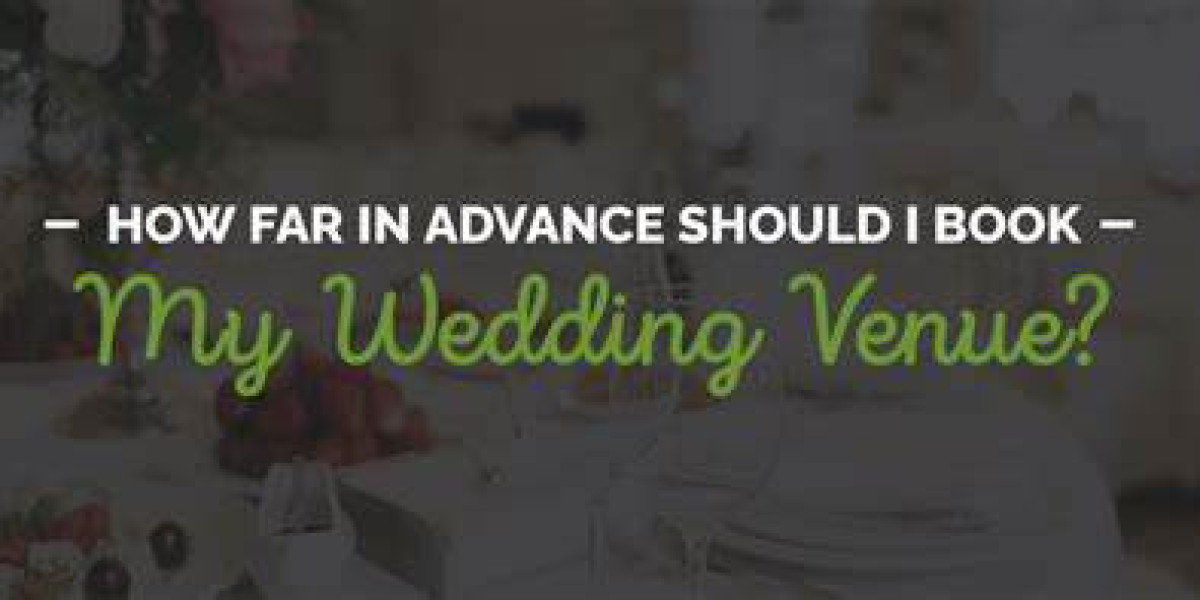Booking an event venue involves several factors that can influence how far in advance you should make your reservation. Here's a comprehensive guide to help you understand and plan effectively:
Factors Influencing Booking Timeline:
- Type of Event:
- Corporate Events: These often require more lead time due to the need for specific dates and possibly large spaces.
- Weddings: Typically booked well in advance, sometimes up to a year or more, especially for popular venues during peak wedding seasons.
- Parties and Social Events: Depending on the scale and popularity of the venue, these can vary from a few months to a year in advance.
- Venue Popularity and Availability:
- Popular Venues: If you have your heart set on a highly sought-after venue, booking early is essential—some popular venues can be booked up to 1-2 years in advance.
- Lesser-Known Venues: These may have more availability closer to your event date, but it's still wise to book at least 6-12 months ahead for peace of mind.
- Season and Peak Times:
- Peak Seasons: Holidays, summer months, and weekends tend to fill up faster. Aim to book 9-12 months ahead for these times.
- Off-Peak Times: More flexibility is possible, but 6-9 months ahead is still advisable to secure your preferred date.
- Event Size and Requirements:
- Large Events: Require more planning due to space requirements and logistics. Book 12-18 months ahead, especially if it involves multiple venues or complex setups.
- Smaller Events: Can be booked closer to the date, but still aim for 6-12 months ahead for the best selection.
- Budget Considerations:
- Early Booking Discounts: Some venues offer discounts for booking well in advance, providing financial incentives.
- Last-Minute Options: While possible, last-minute bookings may limit your venue choices and could incur higher costs due to availability.
Practical Booking Timeline Suggestions:
- 18 Months to 2 Years in Advance:
- For large weddings, corporate events, or highly sought-after venues during peak seasons.
- 12-18 Months in Advance:
- Ideal for securing popular venues, especially if your event date falls during a busy season.
- 6-12 Months in Advance:
- Suitable for most social events, ensuring you have a good selection of venues and dates without feeling rushed.
- 3-6 Months in Advance:
- Still possible for smaller gatherings or if flexibility is not an issue, but choices may be limited.
Tips for Booking:
- Research Early: Start looking at venues as soon as you have a rough date in mind.
- Flexibility Helps: Consider alternative dates or days of the week for more availability.
- Communication: Keep open communication with the venue regarding your needs and expectations.
- Contracts and Deposits: Once you decide, secure your booking with a signed contract and deposit to lock in your date.
Conclusion:
The ideal booking timeframe for an event venue depends on the type of event, venue popularity, seasonality, and your specific requirements. Planning ahead ensures you have the best selection of venues and can alleviate stress as your event date approaches. Whether it's a grand wedding or an intimate party, early booking ensures you get the venue that fits your vision perfectly.
What are the different types of event venues available?
Event venues come in various types and styles, each catering to different needs, preferences, and sizes of gatherings. Whether you're planning a corporate conference, a wedding, a birthday party, or a cultural event, choosing the right venue is crucial for setting the tone and accommodating your guests comfortably. Here's a look at the different types of event venues available:
1. Hotels and Resorts:
- Ballrooms and Banquet Halls: Often preferred for weddings and large corporate events due to their spaciousness and amenities.
- Meeting Rooms: Ideal for smaller conferences, workshops, and business meetings, often equipped with audiovisual facilities.
2. Conference and Convention Centers:
- Large-Scale Events: These venues cater to conferences, trade shows, and exhibitions, offering ample space and specialized facilities like breakout rooms and exhibition areas.
3. Country Clubs and Golf Courses:
- Elegant Settings: Popular for weddings and upscale events, offering scenic outdoor spaces and indoor banquet halls.
4. Historic Buildings and Mansions:
- Architectural Charm: These venues provide a unique ambiance for weddings, galas, and cultural events, often with grand interiors and picturesque grounds.
5. Restaurants and Bars:
- Intimate Gatherings: Suitable for smaller parties, receptions, and corporate dinners, offering a cozy atmosphere and catering services.
6. Outdoor Venues:
- Gardens and Parks: Ideal for weddings, picnics, and outdoor concerts, providing natural beauty and open space.
- Beaches and Rooftops: Perfect for beach weddings, sunset receptions, and city skyline views, offering a relaxed yet memorable setting.
7. Stadiums and Arenas:
- Large-Scale Events: Suitable for concerts, sports events, and massive corporate gatherings, offering extensive seating and facilities for entertainment.
8. Art Galleries and Museums:
- Cultural Atmosphere: These venues provide a sophisticated backdrop for cocktail parties, fundraisers, and exhibitions, surrounded by art and history.
9. Community Centers and Halls:
- Local Events: Used for community gatherings, town hall meetings, and social events, often affordable and versatile in setup.
10. Specialty Venues:
- Wineries and Breweries: Ideal for tastings, weddings, and themed events, offering a relaxed yet sophisticated ambiance.
- Theaters and Auditoriums: Suitable for performances, lectures, and screenings, equipped with seating and stage facilities.
Choosing the Right Venue:
- Capacity: Ensure the venue can comfortably accommodate your expected number of guests.
- Amenities: Consider facilities such as catering, audiovisual equipment, parking, and accessibility.
- Ambiance: Match the venue's style with the theme and mood of your event.
- Location: Accessibility for guests and logistical ease should be taken into account.
Conclusion:
Selecting the right event venue involves understanding the specific needs of your event and aligning them with the unique features each venue offers. Whether you prioritize elegance, functionality, or a scenic backdrop, the diverse array of event venues ensures there's a perfect setting for every occasion, enhancing the overall experience for both hosts and guests alike.







